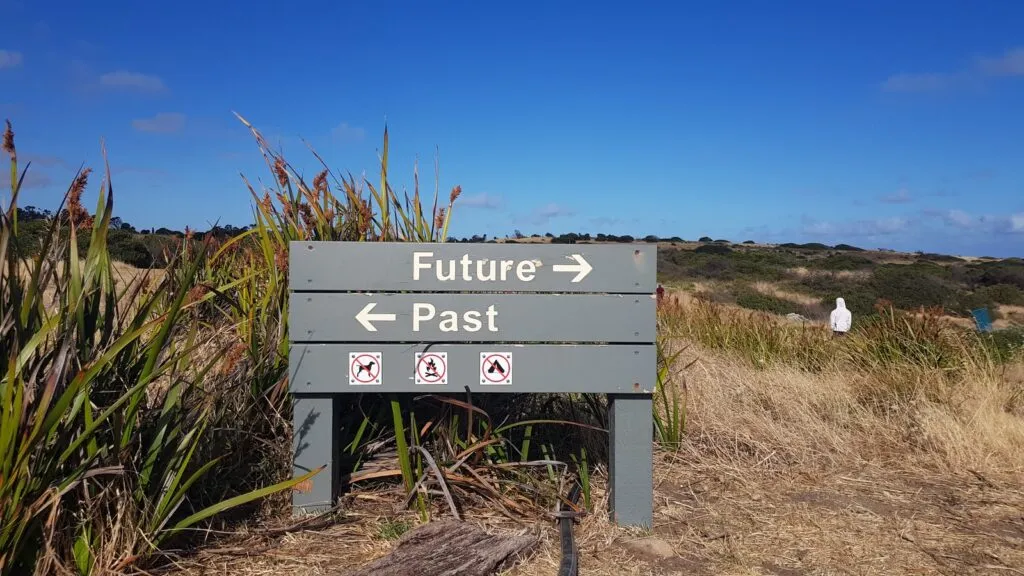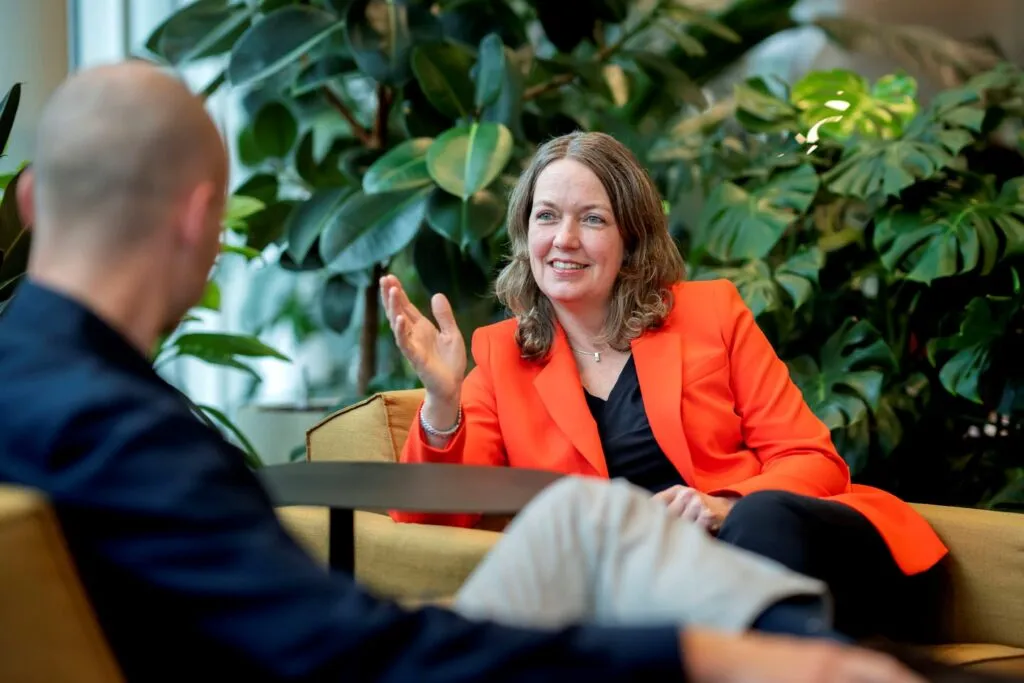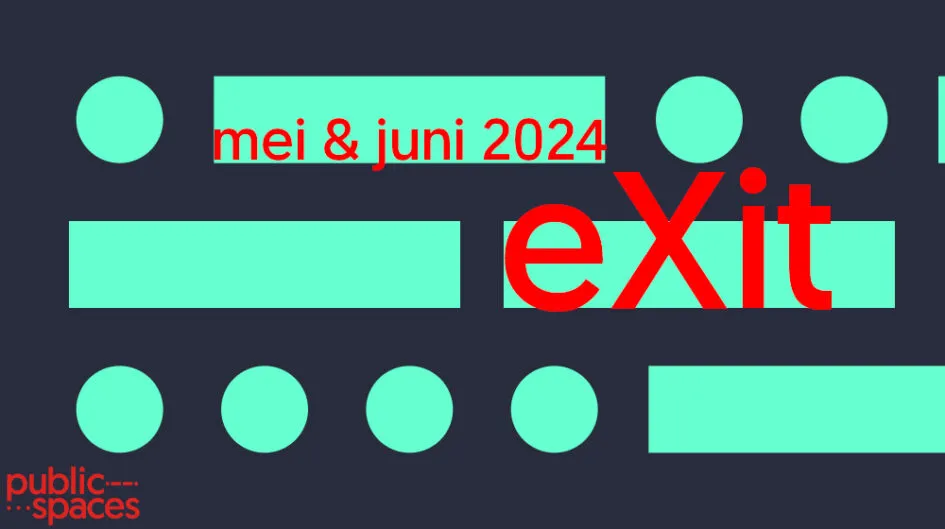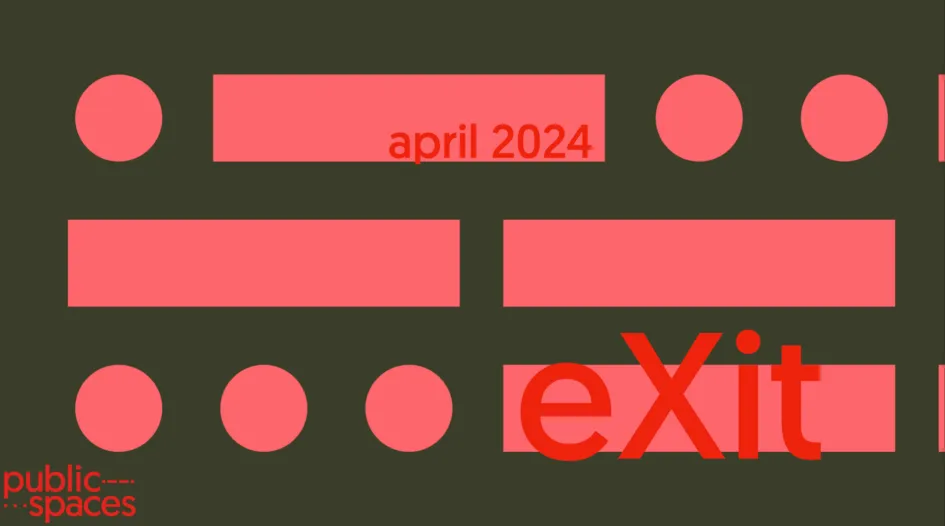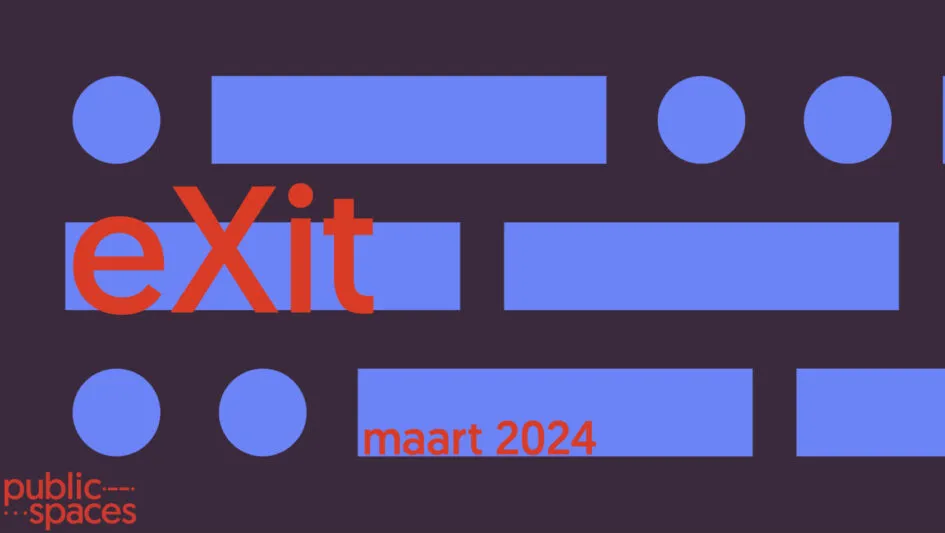By: Timo Nieuwenhuis
We had a talk with media scholar Ethan Zuckerman about how he envisions the future of social media. The appeal he did on public broadcasters to start working at a public digital domain, in this interview with the MIT Technology Review about how social networks are broken, was part of the inspiration for founder Geert-Jan Bogaerts to start PublicSpaces.
We discuss his view on (future) social media, alternative social networks, surveillance advertising, and the role the government, public broadcasters, and the public itself should have within a transition to a more diverse social network era.
From the interview in MIT TECHNOLOGY REVIEW – 9 February 2018:
You wrote a piece in the Atlantic that suggested a publicly supported social network as a potential solution to social media’s echo-chamber effect. Could this actually happen?
I think it’s wholly unrealistic in the United States. It’s something that could be realistic in Europe, [where] you have a public media culture that accepts the idea that you might want to invest money in people having some basic knowledge about politics, the world, the people around them. I could imagine an innovative European public broadcaster saying, “Maybe we build a social network that’s compatible with other social networks, has algorithms designed to help you tune whether you’re getting news about the world, news about your community, and makes those levers visible and controllable.”
Ethan zuckerman
Ethan, how would an internet without social media platforms look like?
“The desire to connect with groups of people is a fundamental aspect in both our lives in general as within the internet. In the historic use of networked computers, we have seen that people have always wanted to communicate with other groups of people. For instance, email was invented already before the launch of the internet and it was used to communicate with other groups through email lists. In addition, people even used online chess games to create online chat rooms where they could talk with others. While chatting was originally never the purpose of those games. So social media is inevitable, it will happen, people will always find ways to be sociable with others online”.
“However, the idea that one company should run those spaces for more than one billion people is not inevitable. There are some incredible benefits from a big platform like Facebook, such as the ability to find almost everyone and to connect with old high school friends and that is amazing. Yet, it is not inevitable that this has to be through a single big platform with a monopoly position. During the covid pandemic, we saw an interesting shift in platform usage. Zoom is an interesting example. First, people started to use Zoom just for their work and studies. However, after a short amount of time people started to meet each other at Zoom for book clubs, dance parties, to watch movies together, and just to catch up. This illustrates that users are very creative in the way they can use social media platforms”.
“So instead, we can imagine a digital world that is much more diverse, where people figure out how they want social media to work for their own communities. The focus would then not be on making revenue but instead on figuring out important community decisions”.
This reminds me of one of your comments during the PublicSpaces conference. During the latter, you mentioned the following: “Why are we not treating organizations, everything from large broadcasters to local coffee shops, as public spaces that can have their own digital presence?” How does this relate to your previous answer about a different imagined digital world?
“In the history of media, we have seen that mankind has always retrofitted their tools to support social interaction. So I believe that we will always find a way to use Facebook to create our local community group for discussing for example local political issues. However, there are reasons to think that a platform like Facebook is not the best tool for doing that. Facebook is known as advertisement-supported. It tenses to promote the angrier, the louder, the more passionate voices. We can not look into the algorithm. The latter might decide that someone’s voice is not worth hearing, and we will never know why. So, we can not ensure that everyone has their voice heard”.
“We should think about building a social network site for actually discussing community affairs. If we could build that network, then the additional question would arise of how that would be different? For me, it would be a network that guarantees that everybody’s voice gets heard. It should have transparency of moderation. We should be able to see what someone had said when it is censored and we should be able to review that. Community governance would be crucial, the people who ran that site should be the people that are also using it”.
“I believe that we can and should build social network sites like these. I even think that it is not so hard to build them. Because it is very expensive to pay for billions of users, fortunately, it is not so expensive to pay for a few hundred or thousand. Therefore, it is not so hard to imagine a coffee shop willing to provide its customers a social network in the say way that they provide them wifi. The same could be done by a neighborhood. Then it would additionally make sense if someone’s job would be to react to the public feedback at the social network of the neighborhood. I think that it would be wonderful if some social network sites are embedded within existing communities and physical spaces”.
So, you imagine a world with a lot of different social network sites?
“That is exactly right. At the moment we have Facebook which is a network of three billion people. Perhaps we should ask ourselves why because no one interacts with three billion people on Facebook. People usually interact with ‘just’ two hundred people on Facebook”.
“So in a fact, on Facebook, you are interacting with a small network, but it is governed as it is a large network”.
“Therefore, I and others envision a world in which there are hundreds of thousands of networks that serve three thousand or less. You might be a member of thousands of them. You might be a member of one from your neighborhood in Amsterdam, you might be another member of your university, and you be might be part of one for photographers. The networks could all have different rules and different affordances. Part of what makes this work is that we are also building software so that you can look at them all in the same place. You can look at not only these new social networks that we are building but you can look at Facebook, Twitter, and everything else”. “The mistake that everybody makes is that they try to build a version of social media that is so much better than that everyone else has built. Their vision is that no one will ever need Facebook again. Well, that is crazy. Facebook is actually super helpful and most people do not wanna get totally rid of it. However, they might want other networks as well. Therefore, at the University of Massachusetts Amherst, we are trying to build social networks surrounding the Mastodon server that can operate alongside existing networks. We are not trying to replace the whole thing, we are trying to complement existing social networks with new networks that work in different ways”.
So, at the University of Massachusetts Amherst, you are building alternative social network sites?
“Yes, exactly. One of the social network sites that we are building, called ‘Small Town’, is based on the Mastodon server”.
Mastodon is a social network that works a lot like Twitter. It allows users to post a status update of several characters. Within that post, they can include photos, videos, links, and hashtags. People can subscribe to another so that they see each other’s posts. Mastodon is designed in a way that users can run their own ‘Mastodon node’. So, when they post something to their server it is still viewable to others that use a different server, but is federating in for instance Canada or Singapore.
What is interesting about a Mastodon node is that the users of a community can themselves set/choose the affordances*, roles, rules, and norms. This provides the opportunity to decide as a community how many characters a post can have. Even more interesting is that they can also edit the moderation rules. This makes it for instance possible to give the whole community the ability to see what content is censored and why. It would be possible for the people to provide feedback on the moderation or even to be part of the moderation team. This provides the opportunity to decide as a community what is seen as acceptable and what is not. Contrasting with Facebook, this ends up in the users running and controlling their own digital space.
*’Affordances’ refer to the available and non-available functions within the digital environment.
- Are you curious about Mastodon? Read more about it at their website or Wikipedia page.
How did this turn out for Small Town?
“Within our Mastodon node we have for instance turned off the federation. So Small Town is just a stand-alone mastodon node. It is just one system where you can have hundreds to thousands of subscribers to it. People can then take part in the moderation of it. Whoever is running it can appoint moderators who participate in it. We have set it up so that you can log on to Mastodon using your credentials from Facebook or Google so that you can get on there with a very low barrier to entry. Users do not even need to create a new account, they will simply have an account based on having those credentials. So that’s how it works”.
“We have set the moderation in a way that users can hide controversial content behind the ‘click for more’ tab. That can be a useful thing if users are having a challenging discussion. We also have affordances for administration. So on Facebook pretty much they take their content down and they boot users. We can warn the users, we can ask them to put content behind one of those hidden taps. We can suspend them. However, all of it ends up in a letter that people can read over time”.
How could we encourage the public to transition to a network like Small Town?
“I think that the way to do it is by introducing them to existing communities that are already communicating through Mastodon nodes. The first place where I am trying to introduce it is by civic interactions. So people who are working together on figuring out what the priorities are in for instance their neighborhood. This would be to answer questions like “How does money need to be spent?”.
“Another way could be through newspapers. We know that people often want to interact and talk about the news. We also know that the existing systems tend to be very terrible. I think that another way to do it is to have the conversations on the social networks be brokered by the editors and reporters. So that they are actually using those conversations to source ideas and to drive their reporting going forward”.
“In many ways, this is an idea stolen from the correspondent. They started this idea of special conversations where you can only be part of if you were a subscriber and a supporter. It was an incredibly smart idea. Sometimes it works very well, sometimes it works less well. But I think that the concept behind it is correct. Having conversations that are including the community or the readers are steps in the right direction”.
If the public embraces this transition, what will that change about surveillance capitalism?
“Well, if we want to dismiss surveillance capitalism we are gonna need to do a couple of things. First, we should think about what would be an ethical model for digital advertising. Personally, when I look back into the past, I was for instance not uncomfortable with advertisements in magazines. Those were not surveilling and targetting me. So I think that we should think about regulating advertising. We should ensure that people cannot consent to digital advertising when they do not really understand it and have no idea what information they are giving up”.
The problem is bigger than surveillance advertising right?
“Yes, indeed. In the past twenty years, an enormous industry of data brokering has been developed. An industry that has almost not been regulated. The few intents to do regulate it have not been so successful. For instance, GDPR just forces everyone to consent to everything without really understanding what they are giving consent to. Therefore, instead, people should be able to really understand it and realize that it is not always reasonable to give their consent. From a policy side, we should not only try to dismiss surveillance advertising but also data brokerage”.
What role should the government have within this process?
“I think that governments should look at the question if it is reasonable and if is it possible for people to have real informed consent about these systems. Because at the moment I am not sure that we have. Most of the time we simply agree to things with very little understanding of what is associated with them”.
“Therefore, we should work much harder to understand what informed consent actually looks like. In cases where we are not interacting with informed consent, we should put real limits on the behavior. What my suggestion would be is to simultaneously do a better job of regulating information collection and brokering broadly. I do not think it is just a matter of regulating online advertising, it is about regulating this whole space of how do we collect this information. However, I do not have the precise public policy answers for what a better-regulated person information space should be”.
What role should public broadcasters have within this process?
“What is interesting about public broadcasters is the idea that there are classes of businesses driven by the market and there are classes of organizations driven by public values. The latter is governed by a manifesto or by a particular public trust rather than being governed by the dictates of the market. For instance, an organization like the VPRO has a set of values where it is committed and where it has to live up to. When you are one of those value-driven organizations it puts you in a very interesting place. Because there are revenue models where you ethically cannot participate in. I would argue that surveillance capitalism is one of them. Therefore, there is the need for tools, systems, and services that live up to your values”.
However, if you want to opt out of those market-driven systems you are gonna have to build new systems yourself. That is what organizations like VPRO are facing. They can decide that they do not wanna participate in certain systems but very quickly they find ‘if I am gonna use this system for comments I am still participating in surveillance capitalism if I want to or not”. That is why these organizations face the situation where they have to find better software or even have to build it themselves. This is what takes them to organizations like PublicSpaces, it is the sort of realization that if we want to be full participants in living up to our values we have to look at our entire software stack and get to a set of ethical systems that allow us to reach audiences and do business in an ethical way.
What role should the public itself have within this process?
“This is an interesting challenge, right. When most people hear about the issues that PublicSpaces is battling for, they first need to understand the ideas and why it is so challenging. It is not immediately obvious to people why this is important. I think that this is going to be a challenge for the general public in all of this”.
For most of us, we have gone through this substantial change. We have gone from a world in which things were very costly to a world in which all things are ‘free’. It is really exciting where all things are ‘free’. It feels like a really liberating world to be living within. However, we have not yet figured out what the costs of “free” are. So I think that rather than getting people terrified about surveillance capitalism, we should show alternative possibilities like Small Town. The whole idea behind networks like Small Town is that you get to govern them. You get to be the one who decides what is acceptable behavior. You get the responsibility of building communities that meet your needs. I think that that is a much more affirmative case and a much more positive case to sell rather than selling it from the negative.
What do you expect to change in the coming year?
“I think we have just gone through some years of enormous change. Certainly having Facebook deplatform president Trump was enormous. We are now facing things like Nigeria, in theory, an open democracy, but they blocked Twitter because they were upset their president was deplatformed. I think that we are gonna have a lot of discussions this year particularly about political leaders on platforms. Furthermore, the more interesting changes might be years further away. They are happening more slowly. I do not think that at the end of 2021 everyone is using decentralized social networks. I think that this is a long and slow process of helping people to understand that they might want very different rules than they experienced before, will start to get more and more traction this year”.
To end our talk: If you could vanish Facebook, Twitter, and YouTube right away, would you do it?
“No, not at any chance. I think that they are really useful for a lot of things. I just do not want a monoculture. We know in farming that a field of one crop is usually not super healthy. It is much more healthy to have diversity. One of the things my team at the University of Massachusetts Amherst is trying to demonstrate is that there is quite a bit of diversity in social media already. We even want more diversity than less of it. That is really where I am trying to make the process”.
*Ethan Zuckerman participated in the PublicSpaces conference in March ’21 – watch his ‘Meet In The Middle’ debate with Jan Hein Hoogstad and Melanie Rieback ->
About Ethan Zuckerman
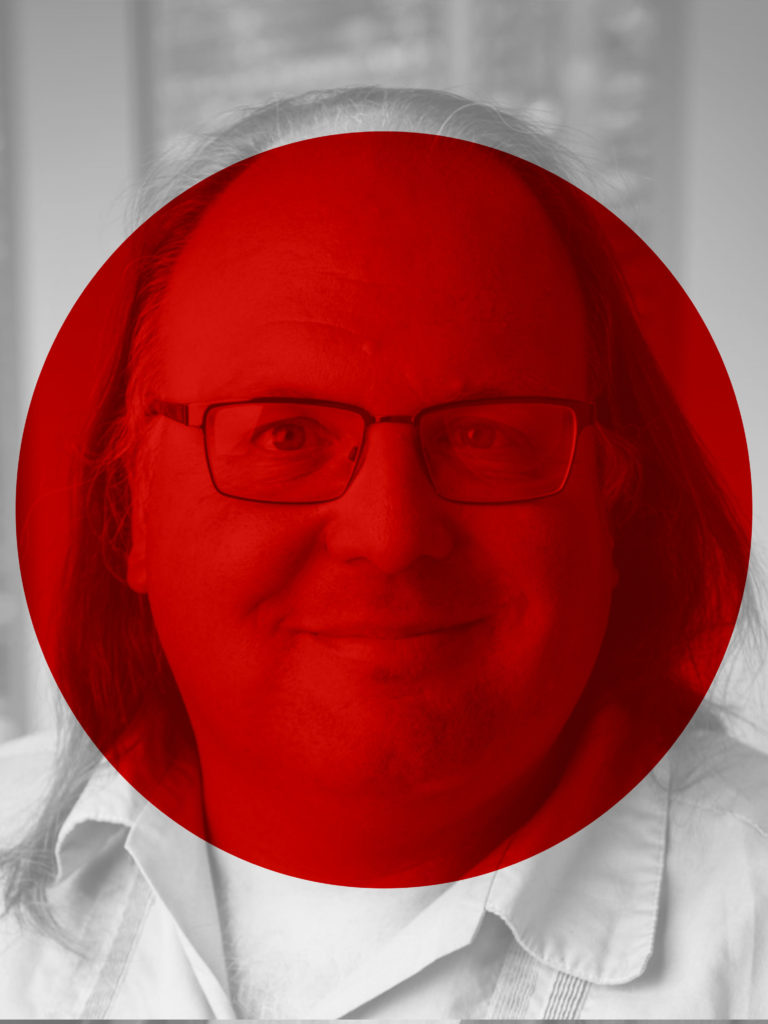
Ethan Zuckerman is a Professor at the University of Massachusetts at Amherst, where he teaches Public Policy, Communication, and Information. He started a new research center called the Institute for Digital Public Infrastructure. Over the years, he has been a tech startup guy (with Tripod.com), a non-profit founder (Geekcorps.org) and co-founder (Globalvoices.org), and throughout it all, a blogger. He started blogging at his own website in 2003. He writes in a lot of different fora – for The Atlantic, Columbia Journalism Review, and other sites, on his Medium page and as part of different university projects. Blogging led him to write books as well as academic and journalistic articles, and much more.
